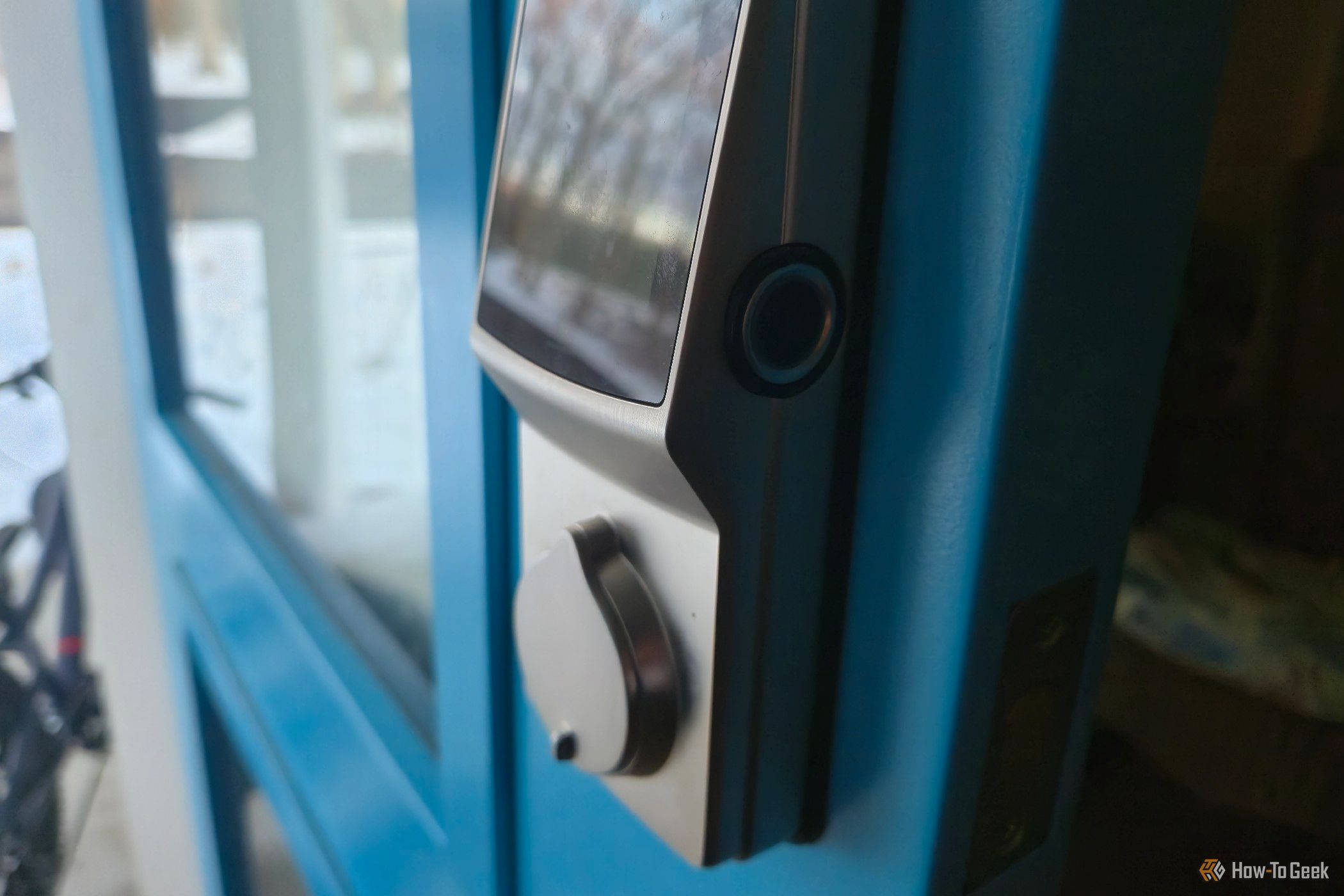Summary
- Fingerprint scanners are prone to failure if your fingers are wet or dirty.
- TP-Link’s lock doesn’t require physical contact with your palm, so it doesn’t matter if your hands are wet or slightly dirty.
- The PalmKey Smart Lock should hopefully eliminate a pain point with fingerprint scanners and potentially even improve security over fingerprint locks.
My wife and I don’t carry house keys. We don’t interact with keypads much either. We have fingerprint locks on every door of our home, and while that has been great, TP-Link’s new palm recognition locks are already tempting me to move on to the next best thing
The Problem With Fingerprint Locks
Don’t get me wrong: I absolutely love our fingerprint locks. While entering a PIN into a keypad is faster than fumbling for keys, tapping a fingerprint is so much faster than fussing with a keypad.
However, fingerprint scanners have some downsides. If I do anything that gets my finger wet, the scanner on my Lockly lock fails. If it’s raining outside, there’s a good chance I can’t use my fingerprint without first drying it off against my pants. And while that is guaranteed to leave my pants feeling damp, it doesn’t always get my finger dry enough.
If I work in the garden and get dirt on my fingers? Even worse. Rubbing my hands on my pants means I now have to toss my pants in the wash, and the scanner might still fail.
Fingerprint scanners are also susceptible to security breaches from anyone who is able to replicate your fingerprint. That said, Lockly claims its scanner is smart enough to tell a real finger from an imitation. Personally, I think a determined thief would more likely circumvent a lock with a power drill before going to all that effort, but improved security remains a core part of what makes palm recognition potentially better nonetheless.
Palm Reading, and Not the Fortune-Telling Kind
TP-Link’s PalmKey Smart Door Lock works by scanning the veins in your palm. This potentially means better security, since it’s harder to create a copy of the veins in someone’s hands compared to snatching a fingerprint or imitating their face. Like fingerprints, palm vein patterns are distinct even among identical twins.
To get into your home, you hold your hand 4 to 10 inches away from the lock, and a scanner above the keypad reads your palm. With TP-Link’s palm scanner, there’s no physical contact involved. This differs from the approach you see with Amazon One, for example, which requires physical contact with your hand.
The Tapo PalmKey Smart Door Lock also contains a keypad, so you aren’t solely dependent on your palm for entry. This is good as a fallback, though it’s even more helpful if you have kids or want to allow guests to enter the house. Lockly recommends that we don’t scan our children’s fingerprints, for example, since their hands are still growing and changing quite rapidly.
How Scanning Palms Trumps Scanning Fingerprints
So why replace fingerprint locks with palm-reading ones? It’s all about convenience.
Since TP-Link’s palm scanner doesn’t require physical contact, it theoretically shouldn’t matter if my hands are wet. And since I usually don’t get my palms caked with dirt when gardening, I should still be able to get into my house quickly after digging up some lettuce. I can keep the doors to my house locked while still moving inside and outside fluidly.
I live in a rural area, and my house sits on multiple acres of land. I like slipping out of my house to go for a walk in the woods. I like to spend time in my garden. I chop and stack firewood. I have more than enough yard work to keep me busy. This is all part of the reason I love open-ear, bone conduction headphones.
If a palm reader can make it easier to slip between the interior and exterior of my home without having to leave my doors unlocked, consider my interest piqued.
TP-Link hasn’t yet announced a price, and I doubt I will race to be one of the first ones to grab one off store shelves. I’m happy to wait until I see more options from different brands in my local Lowe’s or Home Depot.
But the moment any of my existing locks gives me any frustration whatsoever (as electric locks are, sadly, sometimes prone to do), I’ll probably be even more curious about palm-scanning as an alternative, regardless of whether I utilize the other perks of a smart lock.





